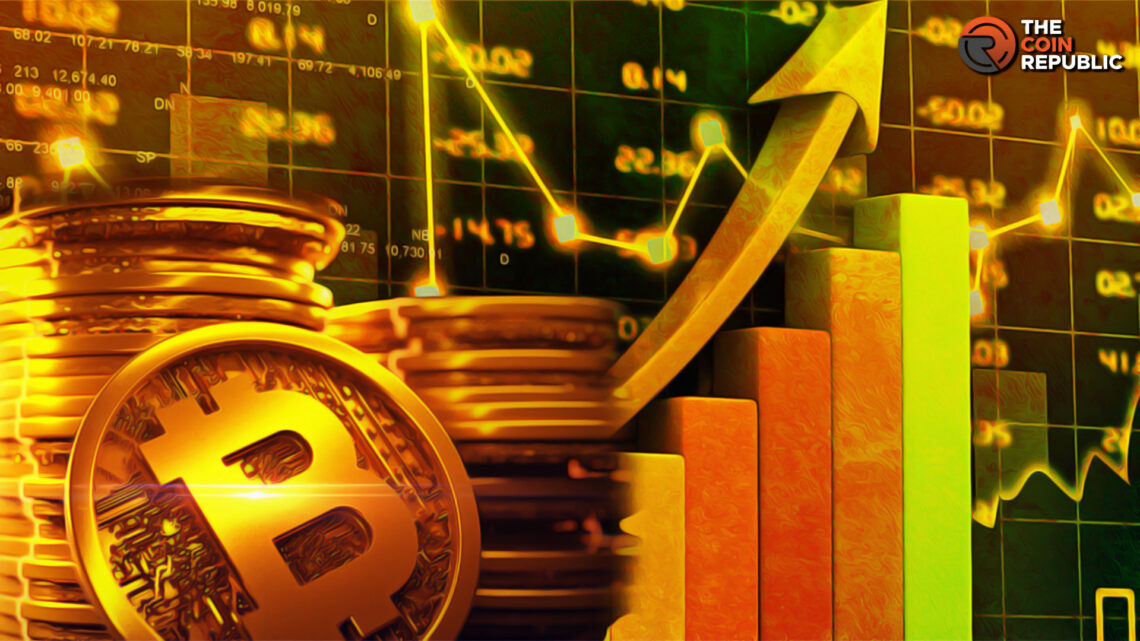- 1 Arthur Hayes, former BitMEX CEO, recently talked highly about Bitcoin on a podcast.
- 2 According to Hayes, Bitcoin may hit somewhere between $750,000 to $1 Million by 2026.
- 3 Hayes is however skeptical about his prediction as the scenario can change very quickly owing to the US government.
BitMEX co-founder and former CEO, Arthur Hayes, who is one of the industry pioneers, was seen in a conversation with popular YouTuber Tom Bilyeu. Hayes seemed to paint a highly optimistic picture of Bitcoin (BTC) price, shed light on the US government’s fault according to him, and potential threats ahead, during the talks.
In a recent episode of the “Impact Theory” podcast series by Tom Bileyu, Hayes appeared as a guest and talked about a variety of subjects. One of the key highlights of the conversation was his take on Bitcoin (BTC) price which he assumes might hit a high of somewhere between $750,000 to $1 Million.
Hayes gave a tentative deadline of 2026 for the flagship cryptocurrency to attain the highly anticipated mark. But, as the former crypto executive puts it, the picture in the long run might not be as glossy as it may seem now.
BitMEX co-founder thinks that there is a possibility of a major financial crisis to take place by the end of this decade which might potentially be “worse than the great depression.” However, before this scary instance takes place, Hayes also believes stocks, real estate, and crypto-like assets are going to witness the largest bull market.
Arthur Hayes Does Not Trust US Government
Hayes points to the almost routine response of the United States government to swiftly intervene in every economic crisis with a bailout as a significant factor contributing to structural issues within the US economy.
The perspective suggests that the reliance on bailouts and government intervention can lead to unintended consequences and shape the economic landscape in ways that may have long-term impacts on the country’s financial and economic systems.
Arguments of the crypto executive suggest that this pattern essentially creates a self-perpetuating cycle of central bank money printing. This can lead to inflation and hinder the economy from experiencing natural market cycles of growth and correction.
In essence, the continuous reliance on bailouts and interventions may disrupt the healthy economic ebb and flow, potentially resulting in long-term consequences for the economy.
Hayes points out that there seems to be a collective agreement that the government’s role is to try to eliminate the natural business cycle. In this view, any negative events in the economy should be mitigated by government intervention, effectively undermining the principles of a free market.
He observes that over the past 80 years, in response to financial crises, the government has consistently rushed in and intervened in ways that could be seen as detrimental to the free market because their aim is to rescue the overall economic system. This perspective raises questions about the balance between government intervention and market forces.

Andrew is a blockchain developer who developed his interest in cryptocurrencies while pursuing his post-graduation major in blockchain development. He is a keen observer of details and shares his passion for writing, along with coding. His backend knowledge about blockchain helps him give a unique perspective to his writing skills, and a reliable craft at explaining the concepts such as blockchain programming, languages and token minting. He also frequently shares technical details and performance indicators of ICOs and IDOs.


 Home
Home News
News










